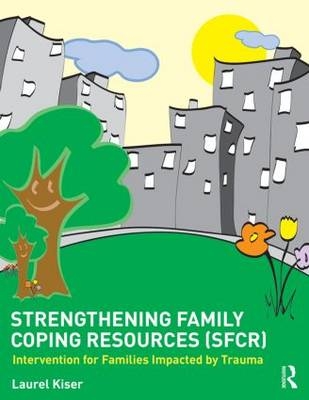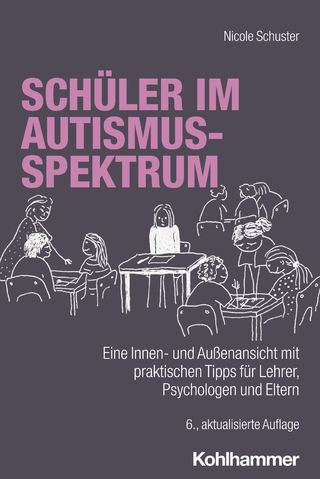
Strengthening Family Coping Resources
Routledge (Verlag)
978-0-415-72953-6 (ISBN)
Strengthening Family Coping Resources (SFCR) uses a skill-building, multi-family group framework to teach constructive resources to families who have a high exposure to stress and trauma. As an intervention for high-risk families, SFCR can cause a reduction in symptoms of traumatic distress and behavior problems and help families demonstrate higher functioning. The SFCR manual is based on a systemic, family approach and uses empirically-supported trauma treatment that focuses on family ritual, storytelling, and narration, which improves communication and understanding within family members. The manual is organized into three accessible parts:
• Part 1 details the theoretical and empirical foundations of SFCR
• Part 2 focuses on implementation and the clinical guidelines for conducting SFCR
• Part 3 contains session guidelines focused on the multi-family group versions of SFCR
Each session included in the intervention is structured according to specific guidelines, and instructions provide examples of what facilitators might say to a group.
Formed through the input of psychiatrists, psychologists, social workers, and anthropologists, Strengthening Family Coping Resources will help you reduce the symptoms of traumatic stress disorders and increase coping resources in children, adult caregivers, and the family system. It also provides a novel approach to addressing co-occurring traumatic reactions in multiple family members by including developmentally appropriate skill-building activities that are reinforced with family practice. For anyone working with families in a therapeutic capacity, this manual is a must-have resource.
Laurel Kiser, PhD, MBA, is a psychologist and an associate professor in the Department of Psychiatry at the University of Maryland School of Medicine. Her research focuses on the protective role of rituals and routines within families, schools, and neighborhoods, and the development of interventions to strengthen these to reduce the effects of trauma. Dr. Kiser was awarded an NIMH-mentored career development grant in support of this work and has also received funding from SAMHSA for dissemination and evaluation. Her articles appear frequently in the professional literature and she is a regular presenter and invited lecturer at national conferences.
Part I:Theoretical and Empirical Foundations 1. Introduction to SFCR 2.Conceptual Foundation for Family Trauma: Families Exposed to Accumulated Traumatic Conditions 3. Theoretical Foundation for Family Constructive Coping 4. Storytelling and Narrative in SFCR Part II: The Practice of SFCR 5. Implementing SFCR 6. Clinical Considerations and Strategies 7. Measuring Change in Trauma Symptoms and Constructive Coping Part III: Session Guidelines I. Rituals and Routines II. Protective Coping Resources III. Trauma Resolution and Consolidation
| Erscheint lt. Verlag | 16.1.2015 |
|---|---|
| Zusatzinfo | 7 Tables, black and white; 35 Line drawings, black and white |
| Verlagsort | London |
| Sprache | englisch |
| Maße | 210 x 280 mm |
| Gewicht | 725 g |
| Themenwelt | Geisteswissenschaften ► Psychologie ► Familien- / Systemische Therapie |
| Medizin / Pharmazie ► Medizinische Fachgebiete ► Notfallmedizin | |
| Medizin / Pharmazie ► Medizinische Fachgebiete ► Psychiatrie / Psychotherapie | |
| ISBN-10 | 0-415-72953-X / 041572953X |
| ISBN-13 | 978-0-415-72953-6 / 9780415729536 |
| Zustand | Neuware |
| Haben Sie eine Frage zum Produkt? |
aus dem Bereich


